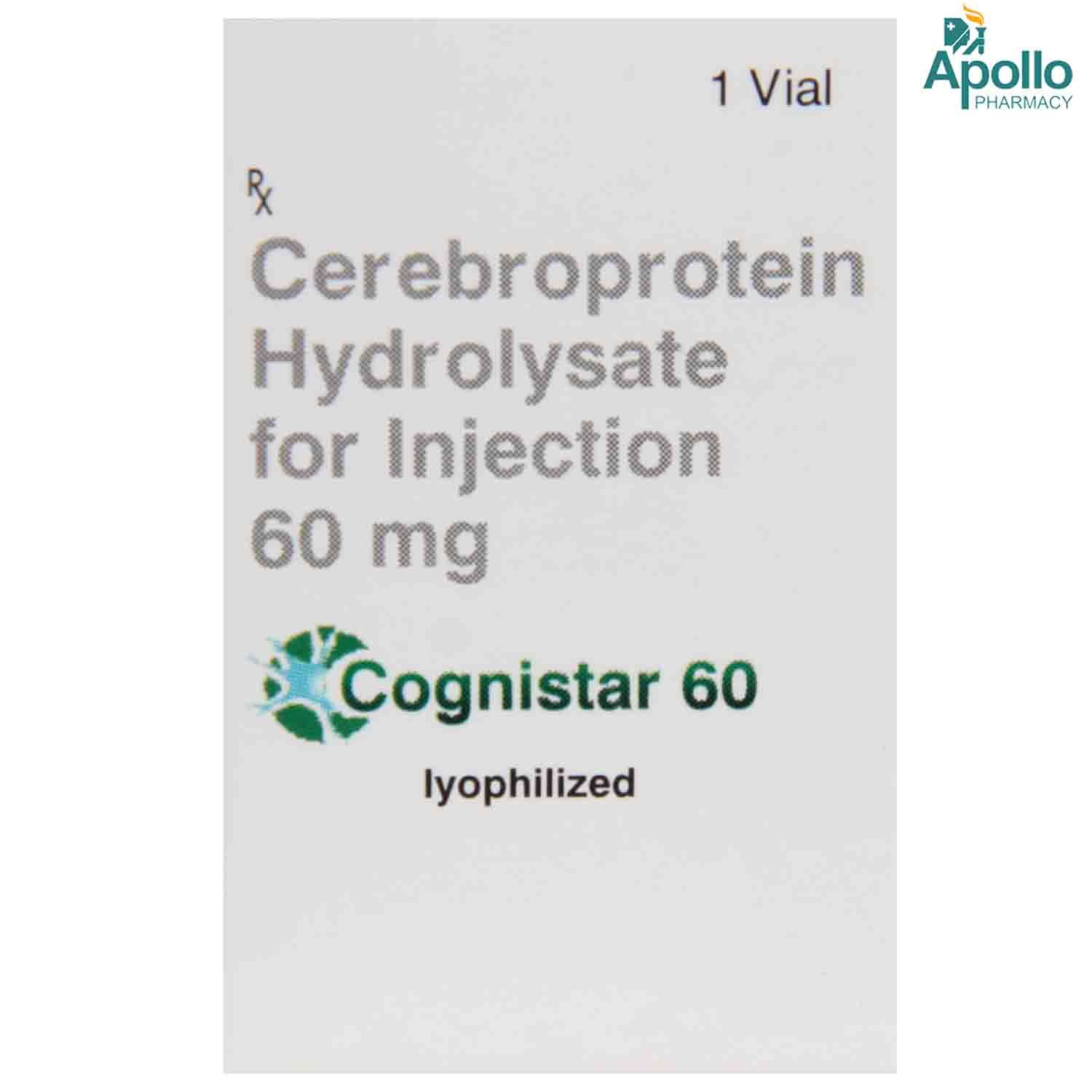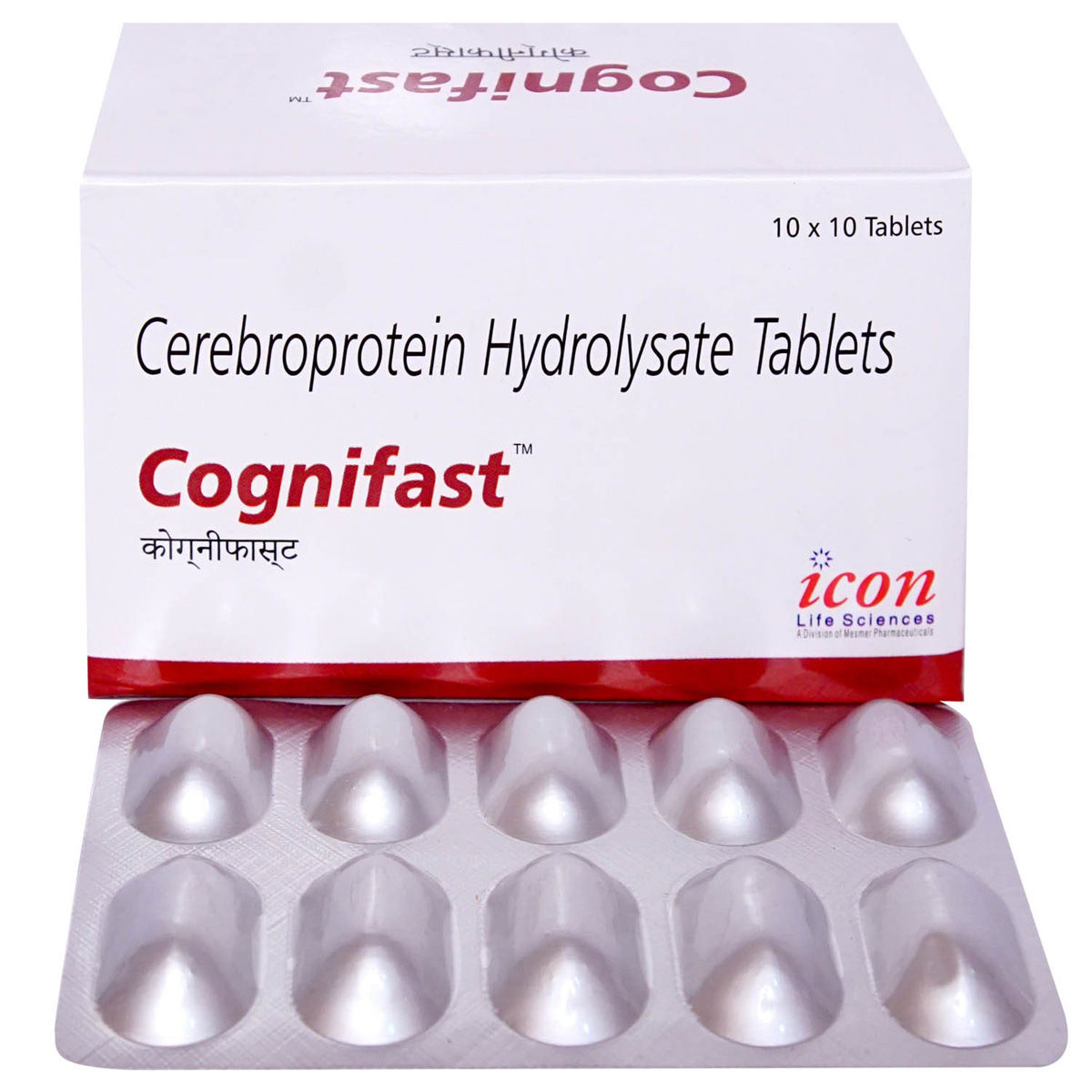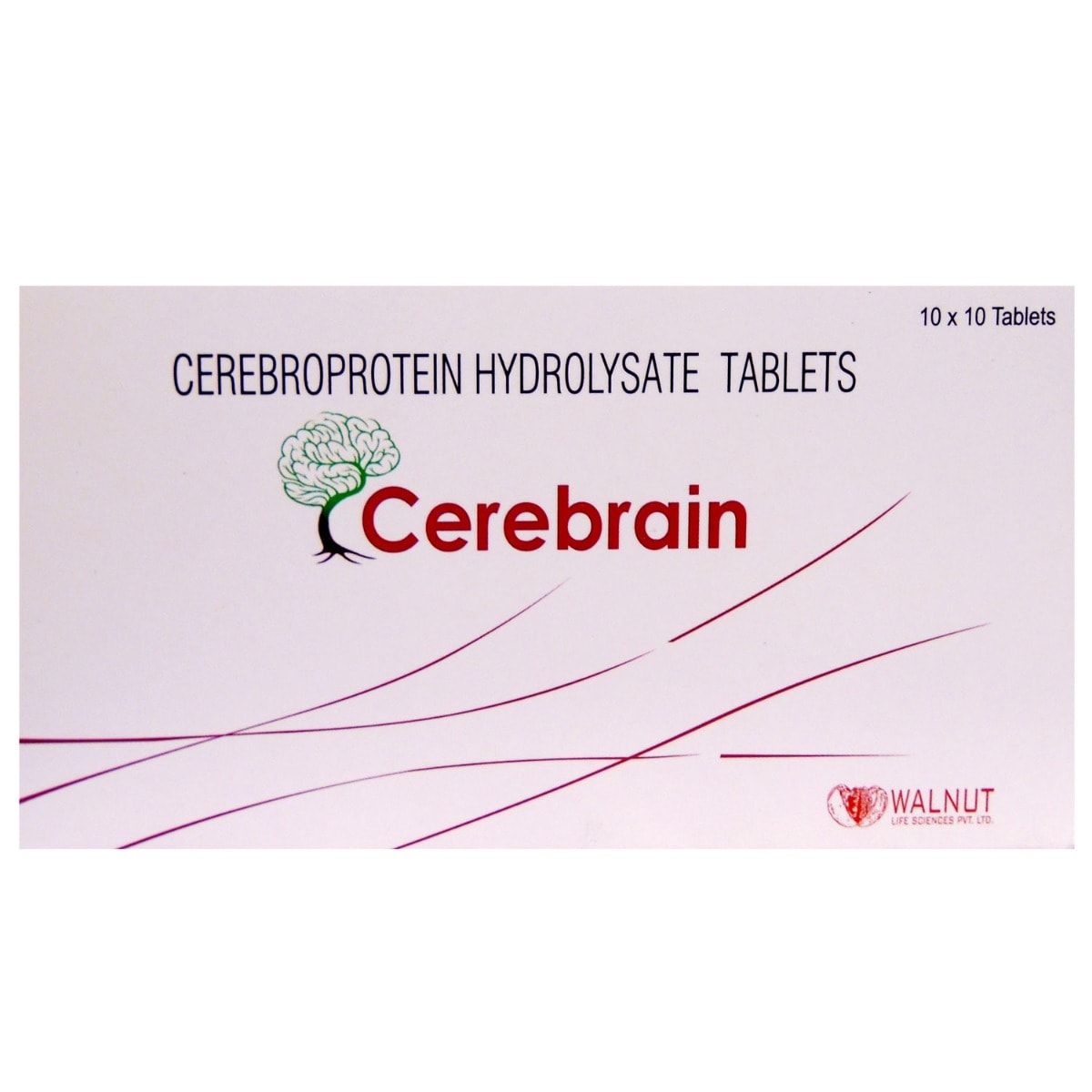Cerebroprotein Hydrolysate
About Cerebroprotein Hydrolysate
Cerebroprotein Hydrolysate is used to protect the nerves from damage and improve their survival due to various reasons such as injury, stroke, and Alzheimer's disease.
Cerebroprotein Hydrolysate contains Cerebroprotein Hydrolysate, which acts on the central nervous system in various ways to protect neurons and improve memory, attention, and vigilance.
Take Cerebroprotein Hydrolysate as prescribed. Depending on your medical condition, you should take Cerebroprotein Hydrolysate for as long as your doctor has prescribed it. In some cases, you may experience certain common side effects, such as headache, nausea, vertigo, increased sweating, agitation, fever, hallucinations, confusion, and flu. Most of these side effects do not require medical attention and will resolve gradually over time. However, you are advised to talk to your doctor if you experience these side effects persistently.
Inform your doctor if you have had an allergic reaction to Cerebroprotein Hydrolysate or any ingredients in it. Do not take Cerebroprotein Hydrolysate if you are pregnant or breastfeeding unless prescribed. Should not administer Cerebroprotein Hydrolysate in the presence of existing severe renal insufficiency. Cerebroprotein Hydrolysate may cause side effects like Light-headedness or dizziness, affecting your ability to concentrate and drive. Hence, it is recommended not to drive or operate machinery until you are mentally alert. Seek medical attention if the symptoms persist longer. Limited information was available on the use of Cerebroprotein Hydrolysate in paediatric patients. Please consult the doctor. Your doctor will prescribe only if the benefits outweigh the risks. Keep your doctor informed about your health condition and all the medicines you take before taking Cerebroprotein Hydrolysate to rule out any side effects.
Uses of Cerebroprotein Hydrolysate
Medicinal Benefits
Cerebroprotein Hydrolysate contains Cerebroprotein Hydrolysate, which belongs to a group of medicines called central nervous system agents primarily used to treat head injury, stroke, and Alzheimer's disease by protecting the nerves from damage and improving their survival. It acts on the central nervous system in various ways to protect neurons and improve memory, attention, and vigilance.
Directions for Use
Storage
Side Effects of Cerebroprotein Hydrolysate
Headache
Nausea
Vertigo
Increased sweating
Agitation
Fever
Hallucinations
Confusion
Flu
Drug Warnings
Inform your doctor if you have had an allergic reaction to Cerebroprotein Hydrolysate or any ingredients in it. Do not take Cerebroprotein Hydrolysate if you are pregnant or breastfeeding unless prescribed. Should not administer Cerebroprotein Hydrolysate in the presence of existing severe renal insufficiency. And should not mix Cerebroprotein Hydrolysate with balanced amino-acid solutions in one infusion. Cerebroprotein Hydrolysate may cause side effects like Light-headedness or dizziness, and it may affect your ability to concentrate and drive. Hence, it is recommended not to drive or operate machinery until you are mentally alert. Seek medical attention if the symptoms persist longer. It is not known whether it is safe to consume alcohol with Cerebroprotein Hydrolysate. However, as a precautionary measure, it is advisable not to take or limit alcohol. Limited information was available for the use of Cerebroprotein Hydrolysate in paediatric patients. Please consult the doctor. Your doctor will prescribe only if the benefits outweigh the risks. Keep your doctor informed about your health condition and all the medicines you take before taking Cerebroprotein Hydrolysate to rule out any side effects.
Drug Interactions
Drug-Drug interactions: Cerebroprotein Hydrolysate may interact with anti-depressants, monoamine oxidase inhibitors (MAOIs), and balanced amino-acid solutions.
Drug-Food Interactions: No interactions found.
Drug-Disease Interactions: People affected with seizures and severe renal dysfunction should consult the doctor before taking Cerebroprotein Hydrolysate.
Drug-Drug Interactions Checker List:
Safety Advice

Alcohol
cautionIt is unclear whether alcohol can be taken while using this medication. However, as a precautionary measure, it is best to avoid alcohol while taking medication.

Pregnancy
cautionPlease consult the doctor. There are no adequate and well-controlled studies on pregnant women. Your doctor will prescribe only if the benefits outweigh the risks.

Breast Feeding
cautionConsult your doctor, and there is no substantial research yet on the use of Cerebroprotein Hydrolysate in breastfeeding/nursing mothers.

Driving
cautionCerebroprotein Hydrolysate may cause side effects like Light-headedness or dizziness, and it may affect your ability to concentrate and drive. Hence, it is recommended not to drive or operate machinery until you are mentally alert. Seek medical attention if the symptoms persist longer.

Liver
cautionLimited information was available for the use of Cerebroprotein Hydrolysate in patients with liver impairment. Please consult the doctor. Your doctor will prescribe only if the benefits outweigh the risks.

Kidney
unsafeShould not administer Cerebroprotein Hydrolysate in the presence of existing severe renal insufficiency.

Children
cautionLimited information was available for the use of Cerebroprotein Hydrolysate in paediatric patients. Please consult the doctor. Your doctor will prescribe only if the benefits outweigh the risks.
Habit Forming
Diet & Lifestyle Advise
Follow a healthy lifestyle as it helps in improving overall health and possibly protects the brain.
Create a bedtime routine as it helps in relaxation and stress reduction.
Include greenery, leafy vegetables and other non-starchy vegetables (tomatoes, broccoli, cauliflower, etc.) in your diet.
Eat strawberries, blueberries, blackberries, and nuts, as they reduce inflammation in the brain.
Use olive oil for cooking purposes. It contains healthy fats that promote brain health.
Eat whole grains such as oats, quinoa, and brown rice that are rich in nutrients.
Opt for fish oil or eat fish (preferably fatty fish like salmon, sardines, trout, and tuna) at least once a week. They are rich in omega-3 fatty acids essential for the brain's normal functioning.
Quitting smoking and not drinking alcohol is the best strategy to lower the risk of any complications.
Patients Concern
Disease/Condition Glossary
Nerve Damage: It happens in several ways: Injury from an accident. Medical conditions, such as diabetes. Autoimmune diseases include lupus and rheumatoid arthritis.
FAQs
Cerebroprotein Hydrolysate is used to protect the nerves from damage and improve their survival due to various reasons such as injury, stroke, and Alzheimer's disease.
Cerebroprotein Hydrolysate contains Cerebroprotein Hydrolysate, which belongs to a group of medicines called central nervous system agents primarily, used to treat a head injury, stroke, and Alzheimer's disease by protecting the nerves from damage and improves their survival. It acts on the central nervous system in various ways to protect neurons and improve memory, attention, and vigilance.
No, it is a prescribed drug given by a physician for preventing specific medical conditions. Taking it on your own can cause unwanted side effects.
Please do not stop using Cerebroprotein Hydrolysate without consulting your doctor on your own. Continue using Cerebroprotein Hydrolysate for as long as your doctor has prescribed it to treat your condition effectually. Do not be reluctant to speak with your doctor if you experience any difficulty while taking Cerebroprotein Hydrolysate.
Cerebroprotein Hydrolysate is safe if used in the dose and duration recommended by your doctor. Take it precisely as directed, and do not skip any dose. Follow your doctor's guidelines carefully and inform your doctor if any of the side effects disturb you.
Cerebroprotein Hydrolysate may cause side effects such as nausea, vertigo, headache, fever, flu, hallucinations and increased sweating. If these side effects persist or worsen, please consult your doctor.
Take Cerebroprotein Hydrolysate as advised by the doctor. Swallow it as whole with a glass of water. Do not break, crush or chew it. Do not take more than the recommended daily dose.
Cerebroprotein Hydrolysate may show improvement in your symptoms after 2 weeks of taking it. However, it may vary from person to person and depends on your response to treatment, condition, and dosage.
Your doctor will decide the duration of treatment with Cerebroprotein Hydrolysate based on your age and illness. It is usually recommended for 10 to 20 days of consistent daily usage of the prescribed dosage of Cerebroprotein Hydrolysate.
Cerebroprotein Hydrolysate is not recommended for patients with severe kidney disease. Therefore, inform your doctor if you have any kidney problem before taking Cerebroprotein Hydrolysate.
If you miss a dose of Cerebroprotein Hydrolysate, do not worry. Take it as soon as you remember. But, if it is time for your next dose, skip the missed dose and take your regular dose. Do not take a double dose to make up for the missed dose.
Cerebroprotein Hydrolysate overdose may increase the risk of adverse effects. If you suspect you have taken overdose of Cerebroprotein Hydrolysate, contact your doctor immediately.










